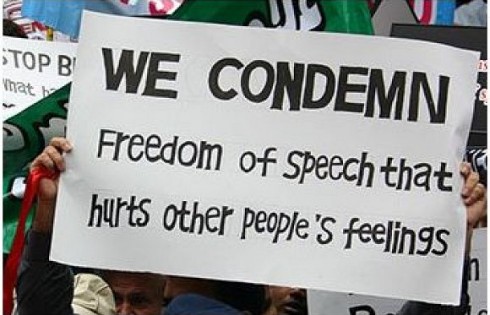At Pima Community College, Jared Loughner asked odd questions in class. He was repeatedly disruptive. And he posted a video to YouTube that called Pima “unconstitutional” and “my genocide school.”
College authorities suspended him in September 2010. Four months later he erupted at a Safeway in Tucson, Ariz., gunning down 20 people, killing six and injuring 14, including Congresswoman Gabrielle Giffords.
Did the college do the right thing in suspending Loughner? Could it have done more to quell his mental instability?
U.S. Secretary of Education Arne Duncan said Jan. 10 that Pima did all it could to handle Loughner. University officials across America are now asking whether they agree, and what more they can do at their own schools.
Jen Day Shaw, assistant vice president of student affairs and dean of students at the University of Florida, a school that regards itself as a model for emergency management, said that suspending mentally unstable students is not always the answer.
“The problem with that is that it doesn’t necessarily resolve the issue. Campuses are open environments. I don’t know of any walled campuses,” she said. “With open campuses you’re actually better off caring for that person and making sure they get help, rather than just turning them loose.”
Caring for them is what many colleges are doing, with even more students needing help in recent years.
Severe mental illnesses are on the rise among college students, according to a recent study presented at the American Psychological Association. In 2009, 96 percent of students seeking treatment for mental health issues were diagnosed with a mental disorder, versus 93 percent in 1998.
Despite this, evidence suggests that college campuses are actually safer than other communities. A study by the Arkansas Safe Schools Initiative showed that the murder rate across the U.S. is almost 44 times higher than on college campuses, and the aggravated assault rate is about 13 times higher.
But in response to the highly publicized crimes that do happen on college campuses, many universities have constructed elaborate systems to handle student threats, including counseling services, campus police forces and streamlined emergency procedures — with many upgrades inspired after the shooting at Virginia Tech in 2007.
The first line of defense for many schools is psychiatric counseling. Alan Glass, assistant professor of clinical psychiatry and and director of the Habif Health and Wellness Center at Washington University in St. Louis, said his university employs counselors and psychiatrists who specialize in caring for college students.
“Since [Virginia Tech] we have added mental health staff and enhanced our work with a campus ‘Care Team,’ a multidisciplinary group of campus partners who convene on a regular basis to discuss the support of at-risk students,” he said in an email.
Multidisciplinary task forces are another favorite strategy on college campuses — teams of administrators and professors from all corners of campus who meet periodically to discuss potentially troubled students. Pima Community College instituted a similar group in September 2010, around the time it suspended Loughner, the New York Times reported.
Eastern Michigan University is among the schools that employ this tactic. Its “Behavior Evaluation Team” includes representatives from psychiatric services, the department of public safety and student judicial services.
Following Virginia Tech it established another, more informal committee, called the “Student Intervention Team,” compose of student leaders who meet biweekly to discuss classmates who may be acting strangely.
EMU’s code of conduct, like other schools’, includes procedures for dismissing students who seem to make the campus environment unsafe.
“The bottom line is: We wanted to have this policy to make our campus environment conducive to learning,” said Bernice A. Lindke, vice president for student affairs at EMU.
Northern Illinois University, which faced tragedy in 2008 when a student opened fire in class, killing six and wounding 18, was able to lock down its campus quickly during the emergency due to procedures established partly in response to the Virginia Tech massacre.
“When Virginia Tech happened, many schools started getting on the fast track with protocols dealing with tragedies like these,” NIU representative Brad Hoey said.
Smaller schools may have an easier job in identifying threats and responding to emergencies, including Michigan’s Hillsdale College, with a student population of about 1,400.
Student affairs staff said even if a student is regularly falling asleep in class, they hear about it and can respond.
“We’ve got a real good net to catch these things. We’re fortunate because of our size,” Dean of Men Aaron Petersen said.
And because the school refuses state and federal financial aid, Hillsdale can do what many other colleges can’t because of privacy rules attached to aid: tell parents if a student is having problems academically or socially.
“If we have the intuition that something’s not right, we can partner up with Mom and Dad real quick,” Dean of Women Diane Philipp said.
“We are clearly a more intrusive school than other schools. And it’s a loving intrusion. We have an honor code and a sense of community,” Petersen said.
Hillsdale updated its emergency response system since Virginia Tech, including a text message system that will alert students in case of a violent situation or natural dangers, such as tornadoes.
Hillsdale’s small size, quiet surroundings and relatively sedate student body give students a considerable feeling of security.
“It’s really safe compared to other campuses. I think the student body is pretty level-headed,” Sam Fiske, a senior who works part-time for campus security, said.
Still, Petersen warned, not even Hillsdale is not immune from danger. Hoey agreed.
“No campus or community is immune from tragedy or heartbreak. We’ve gone through that on this campus; Virginia Tech has gone through it, University of Texas and now the area in Tucson…. I heard someone use the terminology, ‘This is the new reality’…. The key thing is preparedness,” Hoey said.
Elizabeth Essley is the editor-in-chief of the Hillsdale Collegian. She is a member of the Student Free Press Association.
Like The College Fix on Facebook / Follow us on Twitter




Please join the conversation about our stories on Facebook, Twitter, Instagram, Reddit, MeWe, Rumble, Gab, Minds and Gettr.